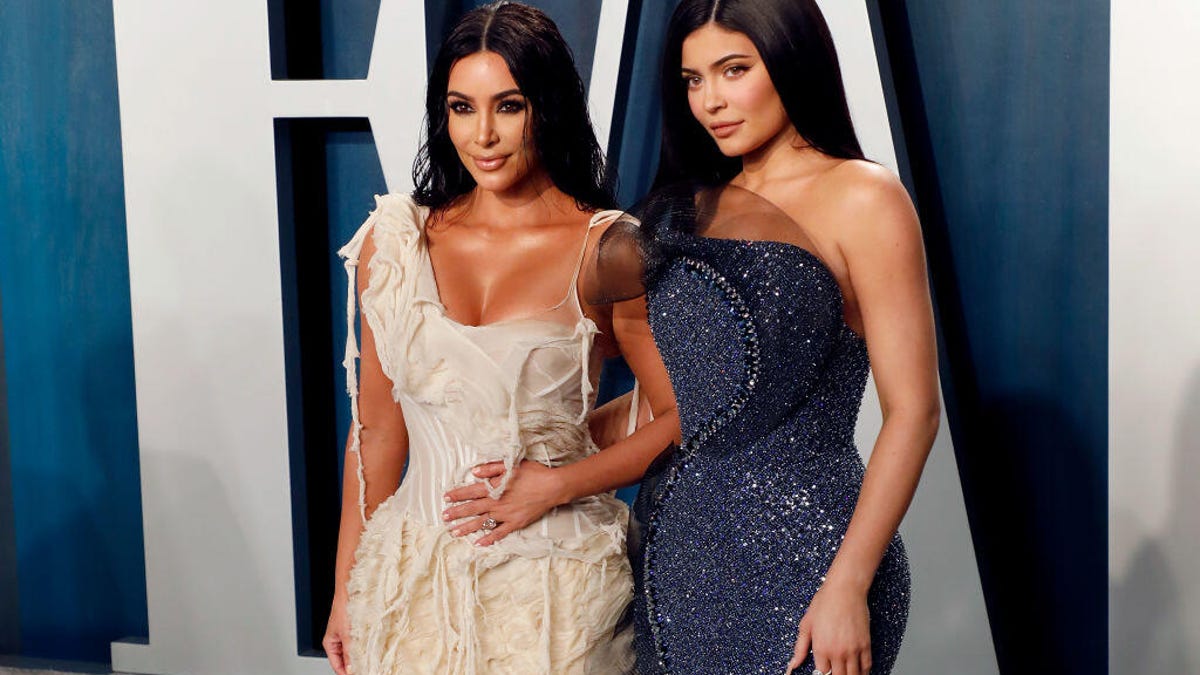Want to Hold Instagram Accountable? Call Kim Kardashian or Taylor Swift
Commentary: They might not be able to get the "old Instagram" back, but big-name celebrities have a curious knack for drawing tech executives out of the woodwork.

Kim and Kylie are just two of several Kardashians upset with recent Instagram changes.
Whether they're looking to make sales or attract users, brands have long reaped the rewards of major celebrity endorsements. But if those celebrities turn on them, businesses can suddenly find themselves having to perform damage control.
Such was the apparent motivation of a video posted to Twitter and Instagram by Adam Mosseri, Meta's head of Instagram, on Monday morning. In the video, Mosseri talked through the full-screen feed test Instagram is conducting with some users, the shift to showing people recommended content from accounts they don't follow and the decision to lean even more into video.
👋🏼 There’s a lot happening on Instagram right now.
— Adam Mosseri (@mosseri) July 26, 2022
I wanted to address a few things we’re working on to make Instagram a better experience.
Please let me know what you think 👇🏼 pic.twitter.com/x1If5qrCyS
It's not completely atypical behavior for Mosseri to address the public directly -- he is one of the more visible and active Silicon Valley executives on social media. But the timing didn't seem coincidental.
Only hours earlier on Monday night, two of Instagram's most-followed users, Kylie Jenner and Kim Kardashian, each added a post to their stories, which said: "Make Instagram Instagram again. (Stop trying to be TikTok I just want to see cute photos of my friends.) Sincerely, everyone."
The original post, created by influencer Tatiana Bruening, has been liked over 2 million times at the time of this writing. Bruening went on to start a Change.org petition protesting the changes that has so far gathered over 193,000 signatures.
The reaction underscores the amount of influence these public figures hold -- arguably more than the lawmakers who have been trying to nail down regulations on social media platforms. This is also far from the first time that criticism from a celebrity has forced a tech executive to publicly address an issue. Back in 2015, Apple CEO Tim Cook announced that following pressure from Taylor Swift, Apple Music would reverse its policy of not paying musicians when their music was streamed during subscriber's free-trial periods. It took only a day for Apple to U-turn on this policy following Swift's publication of an open letter addressed to Apple.
Swift was also reportedly the reason in 2016 that Instagram first introduced a feature allowing people to limit comments on their posts.
Mosseri didn't respond when approached for comment about the two events being linked, but his sudden public defense of the decision to prioritize video over photos on Instagram and bringing in recommendations – shifts that have been evident to users for many months now – can be read as a rebuttal to the heightened blowback sparked by the Kardashians.
In this case, celebrity outrage didn't lead to change. In his video, Mosseri stood firm on his decisions to move Instagram in a new direction. The company thinks it faces an "immense competitive threat" from TikTok that's dictating a shift away from its family and friends roots toward "discovery" content, said Matt Perault, director of the Center on Technology Policy at the University of North Carolina at Chapel Hill.
"Given the business headwinds they face, it seems unlikely they'd roll back the changes in response to pressure from influencers, though it's possible they might make some minor changes to try to address their concerns," he added.
But the fact that Instagram appears to be responding at all, albeit indirectly, to the Kardashians' pleas is still a testament to the influence celebrities can wield in the tech world. In comparison, when the media and governments seek to hold tech companies accountable, they can be stonewalled or face obfuscation or long delays in getting the answers they seek.
While senior tech executives have testified many times in front of lawmakers over the past few years, they also have a habit of sending more junior staff in their place to discuss vitally important issues. In 2018, Meta CEO Mark Zuckerberg was threatened with a formal summons from UK Parliament after refusing to appear and answer questions about the Cambridge Analytica scandal. He never showed up.
The reason prominent tech executives will occasionally respond with a sense of urgency to a celebrity comes down to "basic dollars and cents," said Mark Harvey, author of Celebrity Influence: Politics, Persuasion, and Issue-Based Advocacy and associate professor at the University of Saint Mary. "In the case of Taylor Swift, it's not just her celebrity. It's the money that comes with the sales of her record."
Celebrities such as Kim Kardashian are enormously important to Instagram, generating massive amounts of money and engagement. In recognition of this, Instagram's parent company Meta is in the process of setting up an advisory board to work more closely with the entertainment industry, according to the Washington Post.
Likewise, Instagram is a fundamental part of the Kardashian family business model. In an interview with David Letterman in 2020, Kim Kardashian said it was possible to make more from posting something on social media than filming an episode of her reality show, Keeping Up With The Kardashians. This business-like relationship, which has the potential to be of mutual financial benefit, could well mean tech companies feel under more pressure to react hastily when under fire from celebrities.
But regardless of the exact reason, the power big-name celebrities have to coax some of tech's biggest names into springing to attention is a curious phenomenon to observe. Lawmakers and regulators are unlikely to be able to replicate this influence if they tried, but the next time they want a tech exec to react quickly to an evolving situation, a well-placed call to a sympathetic A-lister might just be their best shot.

